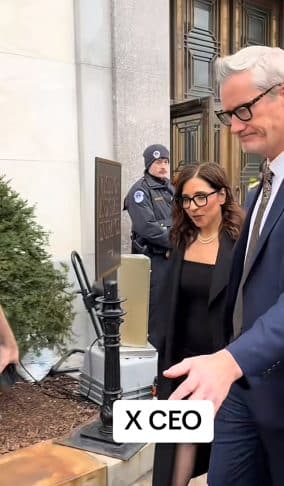In the midst of a highly charged Senate hearing focused on the perils of social media, Meta CEO Mark Zuckerberg delivered a notable public apology, directly addressing families who had accused his platforms, Facebook and Instagram, of causing harm to their children.

Expressing remorse, Zuckerberg stated, “I’m sorry for everything you have all been through. No one should go through the things that your families have suffered, and this is why we invest so much, and we are going to continue doing industry-leading efforts to make sure no one has to go through the things your families have had to suffer.”

This rare acknowledgment comes against a backdrop of intensified scrutiny from lawmakers and child advocates, who argue that the social media industry has, for years, failed to adequately protect its most vulnerable users from various forms of abuse and exploitation. The bipartisan tone in the Senate Judiciary Committee hearing resonated with Congress collectively chastising the leaders of major social media companies, urging them to take immediate and substantive steps to ensure the safety of children and teenagers online.
In recent months, concerns about the detrimental effects of social media on America’s youth have reached a crescendo. A public health advisory from the surgeon general last year explicitly highlighted the “profound risk of harm” that social media use poses to the mental health of kids and teens, emphasizing the need for “immediate action” from tech companies.
Notably, the hearing served as a platform for lawmakers to advocate for a comprehensive package of bills designed to combat the exploitation of children online. One such legislation discussed was the STOP CSAM Act, which proposes allowing victims of child exploitation to sue tech platforms, aiming to hold them accountable for any harm caused.

Zuckerberg and other tech leaders argued during the hearing that they have implemented enhanced protective measures to shield children and teens on their platforms. However, critics sharply disagreed, emphasizing the persistent gaps in safeguarding measures and underscoring the necessity for substantive action and legal accountability.
Among the voices pushing for accountability were Brandy and Toney Roberts, who filed a lawsuit against Meta following the tragic death of their 14-year-old daughter, Englyn, by suicide. The couple asserted that their daughter had received a distressing hanging video on Instagram, contributing to her actions. The American Association for Justice echoed their sentiments, stating, “We want action and legal accountability, not platitudes, from these CEOs.”
As the hearing unfolded, it became a focal point for discussions not only on the need for improved regulations but also on the broader societal impact of social media platforms and their responsibility to address the profound consequences their services can have on vulnerable users, particularly children and teenagers.
